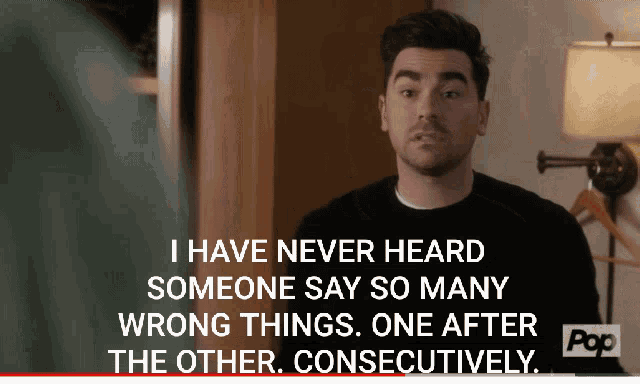Slap Shot
I got nothing
I don't agree with this. It would have gotten even more information into the public record. That is important. Not everything is purely tactical, and predictions of how tactics work out are frequently wrong.
MLK said it is always the right time to do the right thing.
Exactly and this was part of my point. Not to mention they also concluded their investigation in the House too quickly.
How Democrats Are Botching the Fight Over Impeachment Witnesses—and Republicans, Too
The time that Speaker Nancy Pelosi wanted to devote to impeaching Trump over Ukraine fell short of the time it would take to thoroughly investigate Ukraine, so impeachment took precedence and the investigation gave way. The House scored some meaningful witnesses, especially U.S. Ambassador to the European Union Gordon Sondland, but in a more deliberate process, it would have kept working its way up the food chain of Trump officials and digging into Rudy Giuliani’s skullduggery.
Since there wasn’t time to do this before a pre-Christmas impeachment, the House didn’t try. It failed to subpoena John Bolton, whose testimony is now said to be absolutely central to the integrity of a Senate trial.
When a Bolton deputy Charles Kupperman went to court over his House subpoena — seeking definitive guidance on whether privilege applied to his potential testimony — the House dropped the subpoena in a transparently cynical move. It feared any delay, and perhaps an unwelcome ruling by the judge. So it forgot about getting the testimony of a witness it had wanted.
The disturbing Lev Parnas documents just turned over to the House and released publicly are a boon to the Democrats. But the House impeached about a month before getting them. Indeed, if Pelosi hadn’t delayed transmitting the articles in a futile attempt to pressure Mitch McConnell, the Senate trial could conceivably have ended before the release of the documents. Pelosi’s defenders say this is a vindication of her stall, but it’s more of an indictment of her rush to impeach.
Even now, the documents raise questions that would be natural to answer in an impeachment inquiry — if the inquiry hadn’t already ended.
House Intelligence Chairman Adam Schiff says one difference between then and now is that the witnesses in the Clinton impeachment had already been deposed. But that’s because independent counsel Ken Starr fought out the privilege battles with the Clinton White House, and won. In contrast, Schiff and Co. just added obstruction to the articles of impeachment, and began to browbeat the Senate to take up the fight for witnesses.
Also the Dems could have played more hardball with respect to the Rethuglicans refusing to participate in the House proceedings.
So what should the House do instead? Let me suggest two ways that it can play some constitutional hardball of its own, matching the White House’s aggressive tactics.
Refusal to comply with a duly authorized subpoena from Congress constitutes contempt of Congress. Contempt of Congress is a crime, and there is a mechanism for referring such cases to federal prosecutors. The problem, of course, is that federal prosecutors answer to the attorney general and, through him, to the White House, and they refuse to prosecute contempts committed by executive officials. In recent decades, congressional houses have sought a court order requiring executive officials to comply with their subpoenas, but that has all the problems described above.
The House should instead put back on the table the option of using its sergeant-at-arms to arrest contemnors — as the person in violation of the order is called — especially when an individual, like Rudy Giuliani, is not an executive branch official. Neither house of Congress has arrested anyone since 1935, but it was not uncommon before that point (and was blessed by the Supreme Court in 1927). Indeed, on at least two occasions, the second in 1916, a house of Congress had its sergeant arrest an executive branch official. (In that case, the Supreme Court eventually ruled against the House, not because it did not have the power to arrest for contempt, but rather because the offense — writing a nasty public letter to a House subcommittee — could not properly be understood as contempt of Congress.)
One of those less extreme options would be using the power of the purse. The government is currently funded through Nov. 21. There is nothing stopping the House from putting a provision in the next funding bill that zeros out funding for the White House Counsel’s Office. House leadership could announce that, so long as the counsel’s office is producing bad legal argumentation designed for no purpose other than protecting the president from constitutional checks, the American people should not have to pay for it.
Of course, the Senate could try to strip that rider, or President Trump could veto the bill, but if the House held firm, the administration’s choice would be to mollify the House by turning over subpoenaed information, accept the defunding of the counsel’s office, or accept the partial government shutdown that would come with failure to pass the appropriations bill.
One could argue until they're blue in the face it would not have mattered (as in a conviction in the Senate) and that claim misses the forest for the trees.

